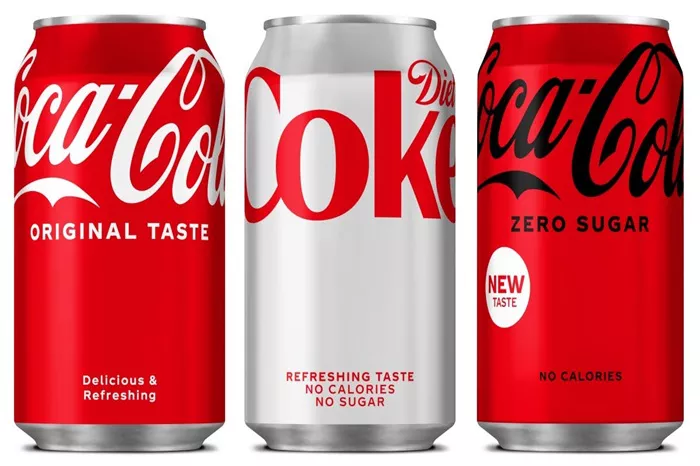Coca-Cola, the iconic and beloved carbonated beverage, has been a staple in households and establishments worldwide for over a century. Its unique flavor and effervescence have made it a go-to refreshment for countless individuals seeking a sweet and stimulating treat. However, despite its popularity, there remains a misconception regarding the presence of caffeine in Coca-Cola. This article aims to provide a comprehensive examination of this subject, exploring the origins of caffeine in Coca-Cola, its effects on the human body, and the various factors that influence its consumption.
The Caffeine Conundrum: A Historical Perspective
The origins of Coca-Cola are intertwined with the caffeine-rich ingredient that gives it its characteristic stimulant effect. In 1886, Dr. John Pemberton, a pharmacist from Atlanta, Georgia, created a concoction based on the coca leaf and kola nut, which were already known for their energizing properties. Pemberton’s beverage, originally named Pemberton’s French Wine Coca, was touted as a “tonic” and marketed as a cure for headaches, fatigue, and various ailments.
In 1888, Pemberton sold the rights to his formula to Asa Griggs Candler, a businessman who rebranded it as Coca-Cola. Candler recognized the potential of the beverage’s stimulant effects and began aggressively marketing it as a refreshing and invigorating drink. The caffeine content in Coca-Cola quickly became a key selling point, attracting consumers who sought a convenient and accessible source of energy.
The Science Behind Caffeine: Effects on the Human Body
Caffeine, a naturally occurring alkaloid, is found in various plants, including coffee beans, tea leaves, and cocoa beans. It acts as a stimulant on the central nervous system, blocking the effects of adenosine, a neurotransmitter that promotes relaxation and sleep. By inhibiting adenosine, caffeine enhances alertness, improves focus, and elevates mood.
Caffeine’s effects on the human body are well-documented. It can increase heart rate, blood pressure, and respiration, while reducing feelings of fatigue and drowsiness. It also stimulates the release of stress hormones like cortisol and adrenaline, which can trigger a temporary burst of energy. However, it’s important to note that excessive caffeine consumption can lead to anxiety, insomnia, and other negative side effects.
Variability in Caffeine Content: Regular vs. Diet vs. Zero Sugar
Over the years, Coca-Cola has introduced several variations of its original formula, including Diet Coke and Coca-Cola Zero Sugar. These variations offer different calorie and sugar contents, but they also differ in terms of caffeine levels. Here is a breakdown of the caffeine content in different Coca-Cola products:
Original Coca-Cola: 34mg per 12-ounce can
Diet Coke: 46mg per 12-ounce can
Coca-Cola Zero Sugar: 34mg per 12-ounce can
The higher caffeine content in Diet Coke is due to the use of artificial sweeteners, which are less bulky and enable the addition of more caffeine without compromising flavor. Coca-Cola Zero Sugar, introduced in 2005, is a no-calorie alternative that has a caffeine content similar to the original Coca-Cola.
Factors Influencing Caffeine Consumption
Several factors can influence an individual’s consumption of caffeine, including age, weight, sensitivity to caffeine, and personal preferences. Younger individuals and those with a lower body weight may be more susceptible to the effects of caffeine and should consume it in moderation. Additionally, some individuals may experience anxiety, headaches, or other negative side effects from caffeine and should limit or avoid its consumption.
It’s important to be aware of the various sources of caffeine in one’s diet, as exceeding recommended intake levels can lead to health problems. The U.S. Food and Drug Administration (FDA) recommends limiting caffeine intake to 400mg per day for most adults, although individual tolerance and sensitivity may vary.
Conclusion
Coca-Cola does contain caffeine, and its varying levels in different products cater to diverse consumer preferences and tolerance levels. While caffeine can provide temporary alertness and energy, it’s crucial to consume it in moderation and be mindful of its potential effects on the human body. Individuals who are sensitive to caffeine or have underlying health conditions should consult with a healthcare professional to determine an appropriate intake level.
As a coffee expert, it’s imperative to provide accurate and up-to-date information on the topic of caffeine in Coca-Cola. This article offers a comprehensive overview of its historical origins, scientific effects, variations in content, and factors influencing consumption. By understanding the complexities of caffeine and its role in Coca-Cola’s popularity, we can make informed choices about our beverage consumption and enjoy the refreshing and stimulating experience of Coca-Cola responsibly.


